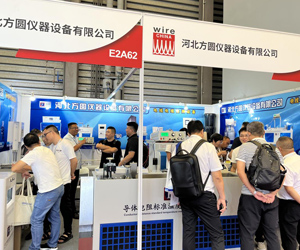tensile strength tester machine
The Importance of Tensile Strength Tester Machines in Material Testing
In the realm of materials science and engineering, the tensile strength of materials is a critical parameter that influences their performance and application in various industries. A tensile strength tester machine plays a vital role in assessing this property, providing essential insights into the mechanical characteristics of materials ranging from metals and plastics to textiles and composites. This article delves into the significance, functionality, and applications of tensile strength tester machines.
Tensile strength refers to the maximum amount of tensile (pulling) stress that a material can withstand before failure. Understanding this property is crucial for engineers and designers, as it helps them choose appropriate materials for specific applications, ensuring safety, reliability, and efficiency. Tensile strength tester machines are equipped with precision instruments that measure the force exerted on a sample until it deforms or breaks, providing quantitative data on tensile strength, yield strength, and ductility.
The functionality of a tensile strength tester machine is grounded in its ability to perform standardized tests. Typically, a specimen of the material is placed in a gripping mechanism at both ends. The machine then applies a controlled tensile load, gradually increasing the tension until the material fails. During this process, it records critical data, including the amount of force applied and the elongation of the material. This data is crucial for generating stress-strain curves, which visually represent the relationship between stress (force per unit area) and strain (deformation per unit length).
tensile strength tester machine

Modern tensile strength testers are equipped with advanced features such as digital displays, software integration, and data analysis tools. These machines can conduct various tests, including static and dynamic tensile testing, while also accommodating different sizes and types of specimens. Automated systems allow for increased efficiency, reducing the time spent on testing while enhancing accuracy and repeatability.
The applications of tensile strength tester machines span a wide array of industries. In construction, for example, the strength of steel reinforcement bars is vital for ensuring the integrity of buildings and infrastructure. In the automotive sector, materials used in vehicle components are rigorously tested to ensure they can withstand operational stresses, improving safety and performance. The aerospace industry relies on tensile strength testing for critical components that must endure extreme conditions without failure.
Moreover, the textile industry utilizes tensile strength testers to evaluate the durability and wear resistance of fabrics, ensuring that garments and upholstery can withstand everyday use. Even in the field of consumer products, such as electronics and packaging materials, tensile strength testing informs designers about the materials' capabilities, contributing to quality control and product reliability.
In conclusion, tensile strength tester machines are indispensable tools in material testing, providing vital information that affects material selection and product safety across multiple sectors. Their role in ensuring that materials can withstand the stresses of their intended applications cannot be overstated. As technology continues to advance, the precision and capabilities of these machines will further enhance our understanding of material properties, paving the way for innovations in engineering and manufacturing.
-
Why the Conductor Resistance Constant Temperature Measurement Machine Redefines Precision
NewsJun.20,2025
-
Reliable Testing Starts Here: Why the High Insulation Resistance Measuring Instrument Is a Must-Have
NewsJun.20,2025
-
Flexible Cable Flexing Test Equipment: The Precision Standard for Cable Durability and Performance Testing
NewsJun.20,2025
-
Digital Measurement Projector: Precision Visualization for Modern Manufacturing
NewsJun.20,2025
-
Computer Control Electronic Tensile Tester: Precision and Power for the Modern Metal Industry
NewsJun.20,2025
-
Cable Spark Tester: Your Ultimate Insulation Assurance for Wire and Cable Testing
NewsJun.20,2025
 Copyright © 2025 Hebei Fangyuan Instrument & Equipment Co.,Ltd. All Rights Reserved. Sitemap | Privacy Policy
Copyright © 2025 Hebei Fangyuan Instrument & Equipment Co.,Ltd. All Rights Reserved. Sitemap | Privacy Policy
